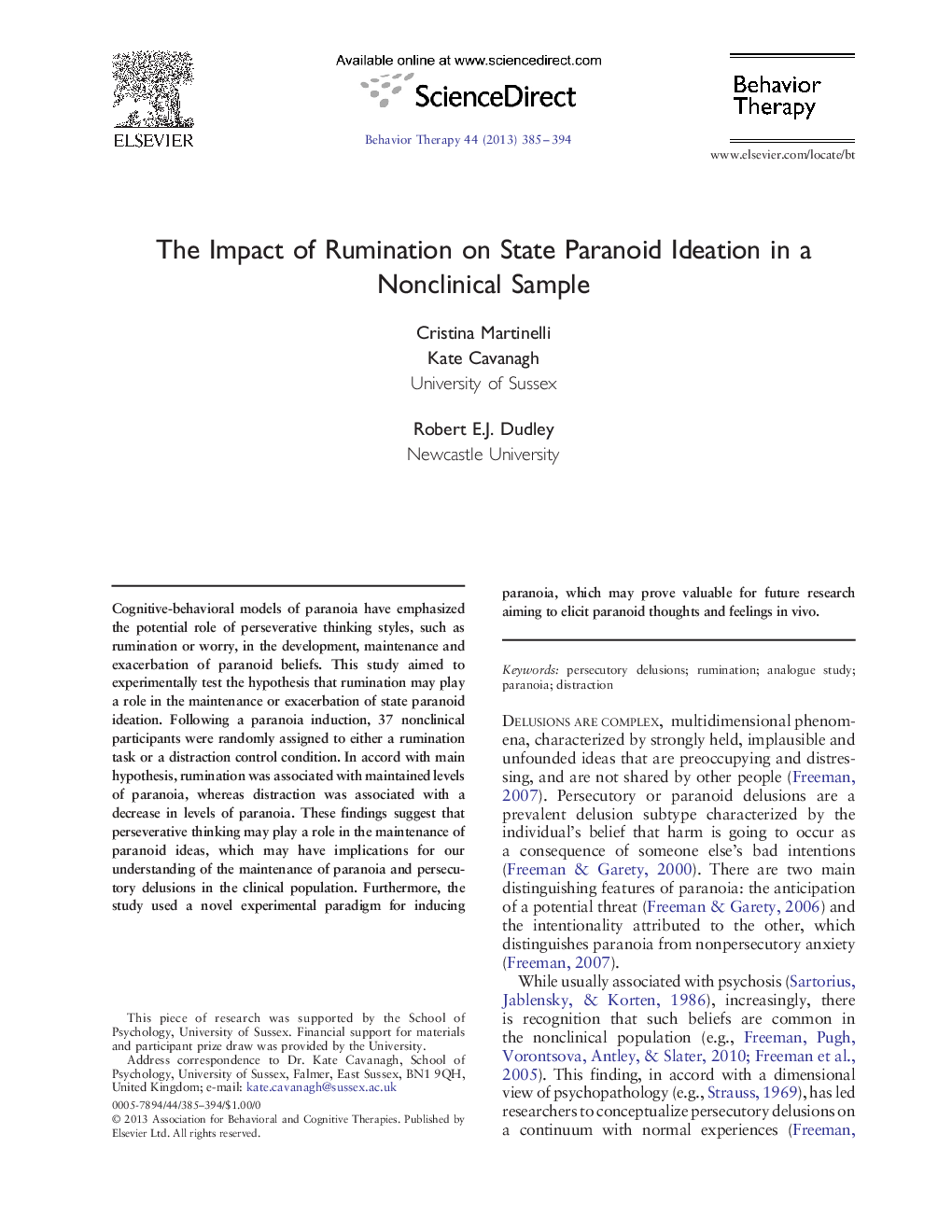| Article ID | Journal | Published Year | Pages | File Type |
|---|---|---|---|---|
| 901268 | Behavior Therapy | 2013 | 10 Pages |
•The impact of rumination on state paranoia was examined•Participants exposed to a mildly threatening social interaction, then randomized to ruminate on or distract from this event•Participants were an unselected student group•Distraction was associated with significant reduction in paranoia; rumination was associated with the maintenance of paranoia•Implications for theory, research, and practice are explored
Cognitive-behavioral models of paranoia have emphasized the potential role of perseverative thinking styles, such as rumination or worry, in the development, maintenance and exacerbation of paranoid beliefs. This study aimed to experimentally test the hypothesis that rumination may play a role in the maintenance or exacerbation of state paranoid ideation. Following a paranoia induction, 37 nonclinical participants were randomly assigned to either a rumination task or a distraction control condition. In accord with main hypothesis, rumination was associated with maintained levels of paranoia, whereas distraction was associated with a decrease in levels of paranoia. These findings suggest that perseverative thinking may play a role in the maintenance of paranoid ideas, which may have implications for our understanding of the maintenance of paranoia and persecutory delusions in the clinical population. Furthermore, the study used a novel experimental paradigm for inducing paranoia, which may prove valuable for future research aiming to elicit paranoid thoughts and feelings in vivo.
